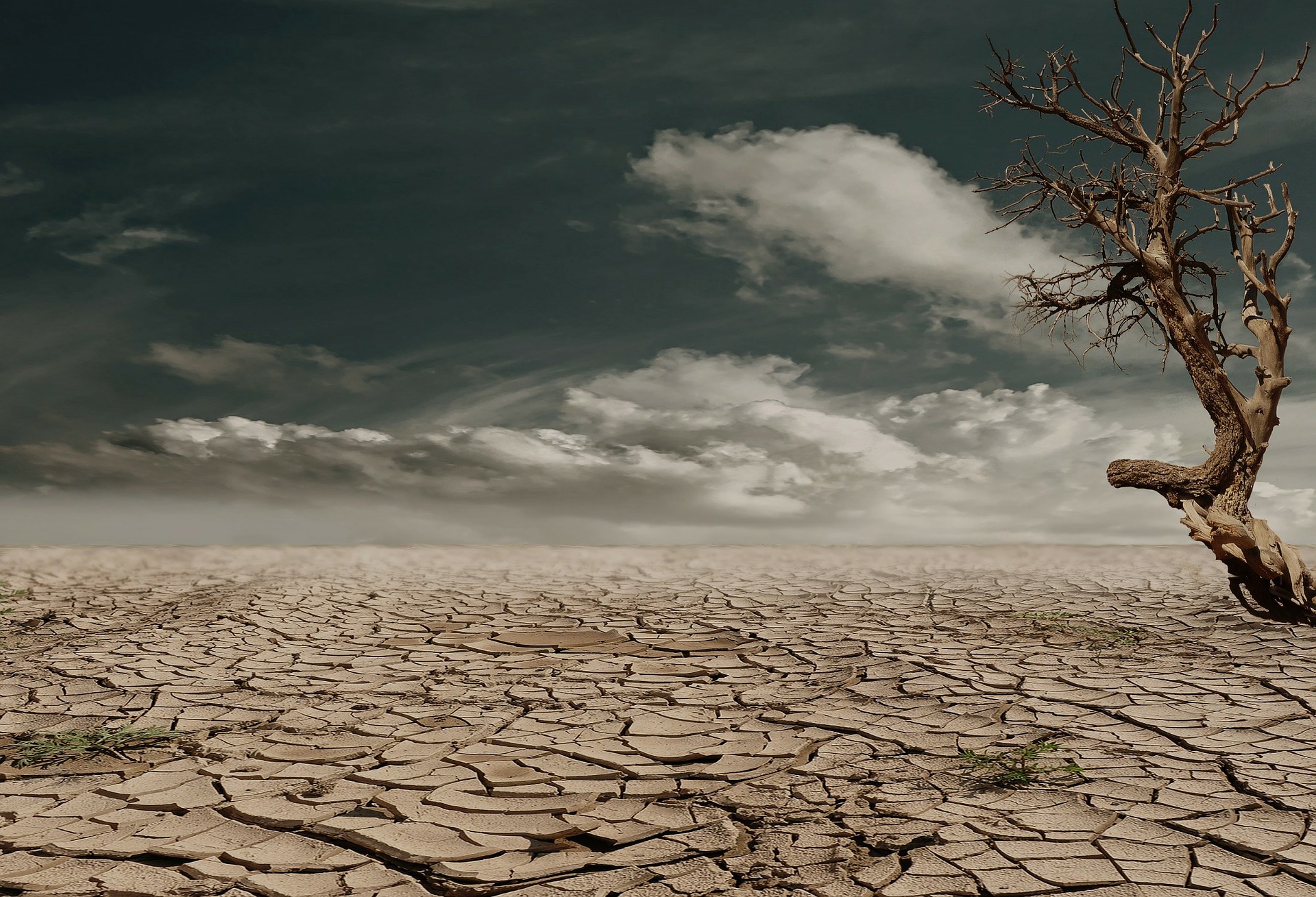
(pixabay/_Marion)
I'm staying in a bed-and-breakfast near the West Texas A&M campus in Canyon, Texas. The town is midway between the town where I was born and the town where I went to school. The library has shelf after shelf of Texas reference materials: maps, property transfers and deeds, a history of the vast land that drew my forbears and others north and west to this place.
I walked quickly to the university after breakfast in the gathering heat. It was already hot, but the air held the promise of more heat, intense heat, the dry blast I feel when I open the oven door to check on a pan of cornbread, rising at 400 degrees. I sought out the haven of trees, searched for shade. I hurried toward the air-conditioned library.
I thought of Robert Frost's poem, "Fire and Ice,"
Some say the world will end in fire,
Some say in ice.
From what I've tasted of desire
I hold with those who favor fire.
But if I had to perish twice,
I think I know enough of hate
To say that for destruction ice
Is also great
And would suffice.
The poem surprised me the first time I read it as a teen. My people were clear on the end of the world as told in Revelation. It was fire. And they were clear on the nature of hell. It was hot. It was eternal thirst. There would never be the respite of ice.
In my research, I found this from an army captain, Randolph Marcy, who crossed the land of my birth in 1852:
My slumbers were continually disturbed by dreams, in which I fancied myself swallowing huge droughts of ice water.
I realize now that the hell we heard preached was a reflection of the land the settlers first encountered, the land before they built houses with breezeways and deep eaves, before they planted rows of treed windbreaks, before they lined the streets with Chinese Elms. It was the place before they drilled into the Ogallala Aquifer and filled their wells and irrigation pumps. And yet, the droughts came and continue to come. The owner of the B&B told me, shaking her head, that Amarillo had three-quarters of an inch of rain a few days ago and Canyon, just 20 miles away, got nothing. It is a land where rain is carefully counted by fractions.
Frost was a New England poet. He knew the killing power of ice. There are ice storms here, too. But they come when the land is fallow. If ranchers can get out to break the ice on the water troughs for their cattle and replenish the feed, it will be well.
Here, where the heat is like fire, it shrivels the crops and cracks open the earth. It kills desire, the desire for movement or industry of any sort, carnal or spiritual. The quest is for coolness, for shade, and, yes, for ice. Ice — which waitresses in West Texas know to bring, always, to the rim of the glass of sweet tea — is not an instrument of destruction, but of healing.
When my cousin's mother-in-law was still alive, I remember asking Juanita about the sermon at her Southern Baptist church one Sunday. "It was cold, mighty cold," she said. She didn't mean cold as distant. She meant cold as error. There wasn't enough hellfire to transform and reform lives.
Advertisement
As I drove south to Texas I pulled in at a rest stop near Trinidad, Colorado. There were lots of travelers milling about, checking their phones or plugged into their earbuds. In the midst of all the humanoids, connected to the ether and unconnected to one another, a young man sat on a wall playing his ukulele. He sat, open and unguarded, his electronic armor surrendered to the strings and the open air.
None of my grandchildren will grow up listening, as I did, to the Farm Report on the radio first thing in the morning. I can still hum the melody that was the intro for the day's hog and cotton prices and wheat futures and always, always, the weather. My grandparents would fall asleep in their chairs watching Red Skelton or Ed Sullivan on TV, but they woke up for the 10 p.m. news and weather report.
My grandchildren are growing up in a part of the country least likely to be touched by weather-related natural disaster, hot or cold. For them, it seems, the weather can be metaphor or inconvenience, but not destiny.
So they will have to come up with another vision of ruin and everlasting torment that "Is also great/And would suffice." I suspect it will be some vision of electronics that appear to connect us while driving us farther and farther from one another. It will be for my grandchildren as it was for my grandparents: They will have to work the land on which they live. They will have to till and plant. My forbears planted trees. My grandchildren will have to plant something else. Perhaps it will be human touch or the gaze of human eyes into other human eyes or the unproduced, unamplified human voice.
And perhaps the unmediated human encounter will be their vision of paradise. Where Lazarus is on Instagram no longer, may we find eternal rest.
[Melissa Musick Nussbaum's latest book, with co-author Anna Keating, is The Catholic Catalogue: A Field Guide to the Daily Acts That Make Up a Catholic Life.]





